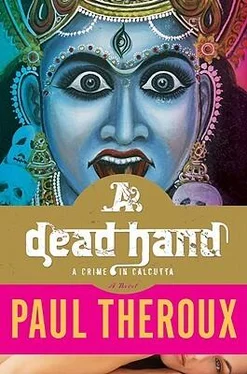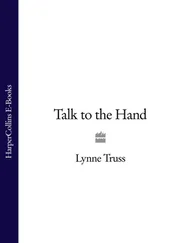"I've never seen anything like it," I said lamely. "It's like a vision of hell."
"You're shocked again," Mrs. Unger said. She looked unmoved; she seemed almost jubilant. "It's not hell. Hell — if you believe in it — is forever. But these girls can be rescued. That's why I'm here. Do you think I'm slumming? A few years ago I came here. I've been back many times. See those old women eyeing me? They know I'm going to hurt their business. But I'm willing to bargain with them."
I was thrilled to think that Mrs. Unger had come here to help these girls — more lost souls. As I considered this, a hand had taken hold of my elbow — a good grip; I couldn't shake it loose. I looked down into the tiny pleading face and desperate eyes of a girl who could not have been more than fifteen. She tugged at me and licked at her lips with a little darting tongue.
Mrs. Unger was turned away. She said, "I don't see any customers."
Sudeep helped me detach the girl's hand from my elbow, but she went on trying to snatch at me.
"It is their misfortune, sir."
"Who are they?"
"Tribals, sir. From the mountains, sir. Nagaland. Some are Mizos and whatnot. They are awaiting the lorry drivers. But your friend — madam — will help them find their freedom."
A few were gesturing to me, calling out, beckoning, striking the poses of coquettes.
"We'll come back tomorrow to negotiate," Mrs. Unger said. She seemed vitalized, her eyes shining with flames. "But I wanted you to see it like this — at night, with the fires. You have to admit this place is full of energy."
Our arrival had silenced them and made them watchful. Who could this foreign-looking woman be in her white sari? And what of that foreign man who stood stunned and staring? After a while their chattering resumed, perhaps conjecturing who we were. We walked the length of the lane, girls on both sides, so many of them, all of them in makeup — powdered faces, rouged cheeks, smeared mouths, blue and green eye shadow, their hair fixed with combs; but even so, they looked like schoolgirls dressed for a pageant or a school play that was about to begin. Most of them were barefoot, but some tottered on high heels they'd not yet mastered. They called out, they grabbed my arm and pinched my hand, and a few begged money from Mrs. Unger, who walked slowly among them — tall, in her elegant sari, utterly calm, offering soothing words. She had never looked more like a priestess.
Sudeep caught up with us at the far end of the lane. He said, "I have addressed a few of women. They are agreeable to negotiations."
But Mrs. Unger was looking at me. "See?" she said. "It's possible to bring a little hope. Even here."
The next day I accompanied her to Nagapatti again. Even in daylight the place looked vicious, the girls wearier, the fires smokier. The firelight of the night before had lent it an air of debauched glamour. But today the sky was overcast and clammy, and the lane stank of woodsmoke. The incense stung my nose. I could see the girls' skinny legs and dirty feet, and some of the small children were crying miserably.
It was my job to sit outside and turn away potential customers while Mrs. Unger and Sudeep negotiated to obtain the release of certain girls. Only one man wandered by, unshaven and dirty, a truck driver probably.
"Come later," I said, and he was so surprised that he shrugged and obeyed.
I stared at a bewildered girl, who stared back at me. I didn't know what to say. She went on staring and then made a kissing noise at me. She cupped a breast with one hand and touched herself with the other.
Flustered, I said, "See that nice woman?"
The girl clung to my leg. Her fingernails were bitten and painted pink.
"That nice woman is going to help you."
Still she held on to my leg and leered at me.
That evening we flew back to Calcutta. I had not realized it was possible to go so far.

AND, AT LAST, I began to write. I surprised myself at the ease of it. I thought I'd been lost, done with the written word. But no, I was at work again. I had something to write about, and I had the energy.
Most people thought of me — probably think of me still — as an adventurous traveler, welcoming hardship, willing to take risks, going to extremes to find the subject of a magazine piece. The hard and lonely life of a wanderer. "Your amazing tales." I was, for most of my readers — for many people who knew me — invisible. My career had been made out of a series of calculated vanishings, inspiring people to imagine what I was up to. Stick around too long and get cozy and conversational and people realize you're human.
If you go far enough, if you stay away long enough, people imagine the worst and begin suffering the hardship on your behalf, and they credit you — they certainly credited me — with stamina and ingenuity. So the distant traveler acquires a kind of power — and more than power, virtue — for the very fact of being away, mooching around in inhospitable countries. Heat, dust, swamps, bad roads, mobs, skinny children, scolding men, nasty boys, mushy food, rats, roaches. I did nothing to dispel the notion. I became the conspicuous absentee. The fact was that I usually stayed in good hotels, and sometimes great hotels, the sort of luxury that can exist only in countries where people are servile and underpaid.
Remove Mrs. Unger and her magic fingers from the trip to Assam; remove the happy hotels and the helpful servants — the guides, the dhobis with a bag of my laundry, Mr. Baruha sitting next to the driver, Sudeep awaiting orders; remove the comforts, don't mention the pleasures, and what's left is the grubby train, the bamboo huts, "Bodoland," the slum urchins, and the child whores in Nagapatti — the horrors of travel without any compensations.
But my traveling life had been all about compensations. I would never have lived in this wandering way if the pleasures had not outweighed the difficulties — I mean, far outweighed them. I hadn't chosen my life out of a desire to confront danger but rather because I was lazy and evasive, ducking out or moving on whenever I felt like it, whenever something was expected of me, when I had to be grown-up and accountable.
I lived like a prince, which is to say I had no responsibilities, and at the same time I was (as a traveler) credited with being a hero. I mentioned at the beginning of this story how I had managed to live my life this way, pretending to be big and busy—"I have to be in Bangkok next week" — while merely looking for outlets for my pleasure-seeking.
I had come to Calcutta out of pure idleness, not to write but to give lectures. Howard had invited me; the American consul general was my sponsor. Bengalis were highly literate, and most of the ones I met spoke English well — so well that they wouldn't stop talking. My lectures were simple. The Indians in the audience sat waiting for me to finish (sometimes impulsively interrupting) and then took turns talking, not questions but long, ponderous pronouncements about art and life. In their vain and wordy pretensions (harmless, really; I found them lovable) they wanted to be regarded as thinkers, challenging whatever I said, this verbose show of wisdom being the embodiment of the Indian ideal, the philosopher, the sage. Their love of discussion was comic, especially in Calcutta, which was falling apart as all the Bengalis went on yakking, yakking, yakking.
I was no different. I was an evader and a fraud in much the same way and for many of the same reasons. Why make hard decisions and assume responsibilities if you can procrastinate by yakking? Talking was the answer, and in my case had displaced my writing. Writing was difficult. Talking about writing was a low and profitless form of discourse, and probably the laziest.
Читать дальше













